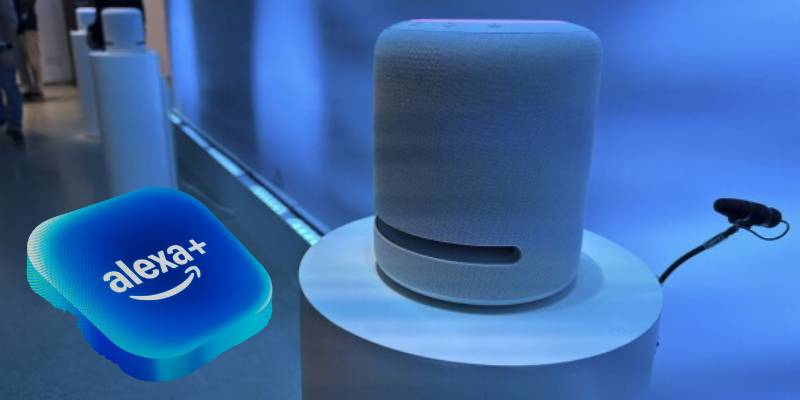There’s something oddly comforting about hearing a familiar voice say, “Good morning, want me to start the coffee?”
But when that voice suddenly remembers your favorite breakfast spot and asks how your last date went — that’s when the line between assistant and companion starts to blur.
And that’s exactly where Amazon is steering with its all-new Alexa+ — the company’s most ambitious leap into generative AI yet.
The new Alexa isn’t just a speaker with a better vocabulary; it’s a conversationalist, a planner, maybe even a confidant.
Amazon says it will “remember context,” meaning if you ask it to remind you to pick up flowers next Friday, it won’t just note it down — it’ll understand why you might need them.
Creepy? Maybe. Convenient? Absolutely.
And it’s not just a brain upgrade. The reengineered system reportedly gives Alexa a warmer, more human tone, with inflection and emotion that mimic how people naturally speak.
In demos, Alexa+ handled long, meandering requests like “find a cozy place to grab tacos near the beach this weekend” with surprisingly nuanced results — combining map data, local reviews, and a dash of personalization.
It feels less like talking to a machine and more like chatting with that ultra-efficient friend who somehow always knows a good spot.
Still, I can’t help wondering if Amazon is trying to out-human humans. The timing’s interesting too: Google’s own voice assistant overhaul dropped just days earlier, signaling a race for the AI living room throne.
Meanwhile, Apple is said to be training Siri on multimodal models that let her see, hear, and process context like never before.
The tech giants aren’t just improving assistants — they’re designing digital personalities we’ll soon live alongside.
What’s fascinating is how far this all goes beyond smart-home control. Imagine Alexa not only managing your lights and playlists, but also shaping your mood.
Amazon quietly admitted that it’s experimenting with emotional tone recognition — Alexa might soon respond differently if it detects frustration or excitement in your voice.
That’s both thrilling and a little unnerving. Psychologists have already begun debating the implications, with The Atlantic exploring the “empathy illusion” in AI voices earlier this week, pointing out how human-sounding responses can trick users into overtrusting machines.
Personally, I see both the magic and the mayhem. I love the idea of Alexa understanding me better — who doesn’t want their devices to “get” them?
But part of me misses the clunky, obvious tech barrier. You knew it was a gadget, not a guest.
Now, when Alexa laughs at my bad jokes (and yes, she does now), I’m not sure if I should feel proud or slightly manipulated.
Underneath the charm, there’s a clear strategy: Amazon wants to anchor AI in everyday life, not just in labs or offices.
According to Reuters’ tech desk, the company plans to integrate Alexa+ with shopping, health tracking, and even education tools.
The goal? Make AI as natural and indispensable as Wi-Fi — something we no longer question, just use.
And maybe that’s where the real transformation lies. AI voices aren’t just assistants anymore; they’re inching toward being companions.
The upcoming Echo Show models will feature conversational memory, facial recognition, and even ambient emotional awareness. It’s tech designed not just to help — but to connect.
Still, I can’t shake one thought: once our machines learn to talk with us, how long before they start talking for us?

